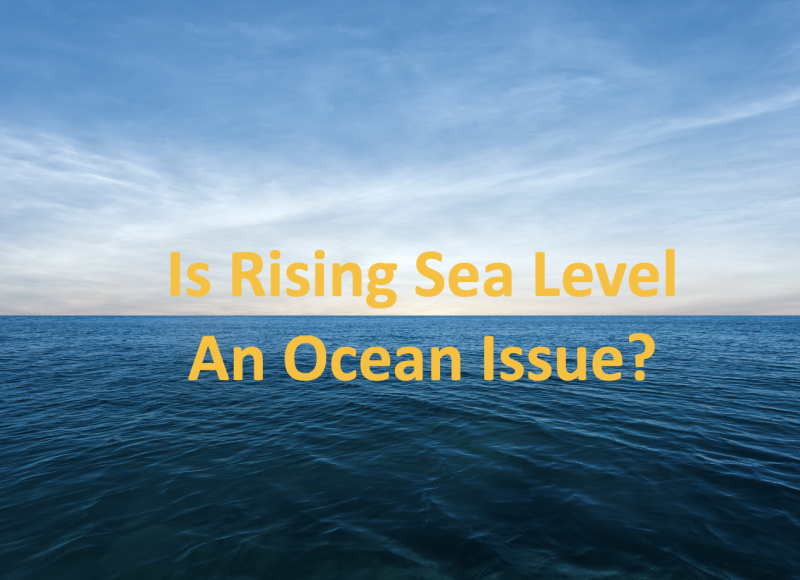Is Rising Sea Level An Ocean Issue?

Often, when the topic of rising sea level comes up, people see it as an ocean-issue. That puts it in the broad category of issues like plastics in the ocean, the decline of coral reefs, or overfishing. It’s understandable of course, but opens up the larger question: Is rising sea level really an “ocean issue”? Surprisingly, not as much as one might assume.
It may seem trivial, but is worth a moment’s thought. Context, framing, and connections are fundamental to developing awareness, and support to address any issue.
If the problem is a rising ocean, it would seem intuitive that it should find a concerned audience in those already deeply involved with marine issues. Over the last decade of my nearly full time focus on rising sea level it has become very clear that sea level rise is not fundamentally an ocean issue –though there are some important impacts. Rising sea level is more of a land issue and an economic issue.
In coastal areas, just a few feet of higher sea level will make a big difference to the shoreline. One rule of thumb says that average shorelines can move inland three hundred times the vertical rise. In other words, if the sea rises five feet, depending on the shoreline elevation profile, the coast could move a quarter of a mile inland – and in some places far greater. Millions of acres of good solid real estate in low lying coastal areas are threatened by rising seas.
Permanently higher sea level poses a challenge for coastal communities, homeowners, businesses, and local government. While there are ocean aspects, it is more relevant to frame sea level rise in terms of the economic impact of devalued real estate, displaced communities, national security and humanitarian concern.
On the positive side, adapting to long term rising sea level has the potential to be an engine for economic growth as we confront the adaptation ahead.
